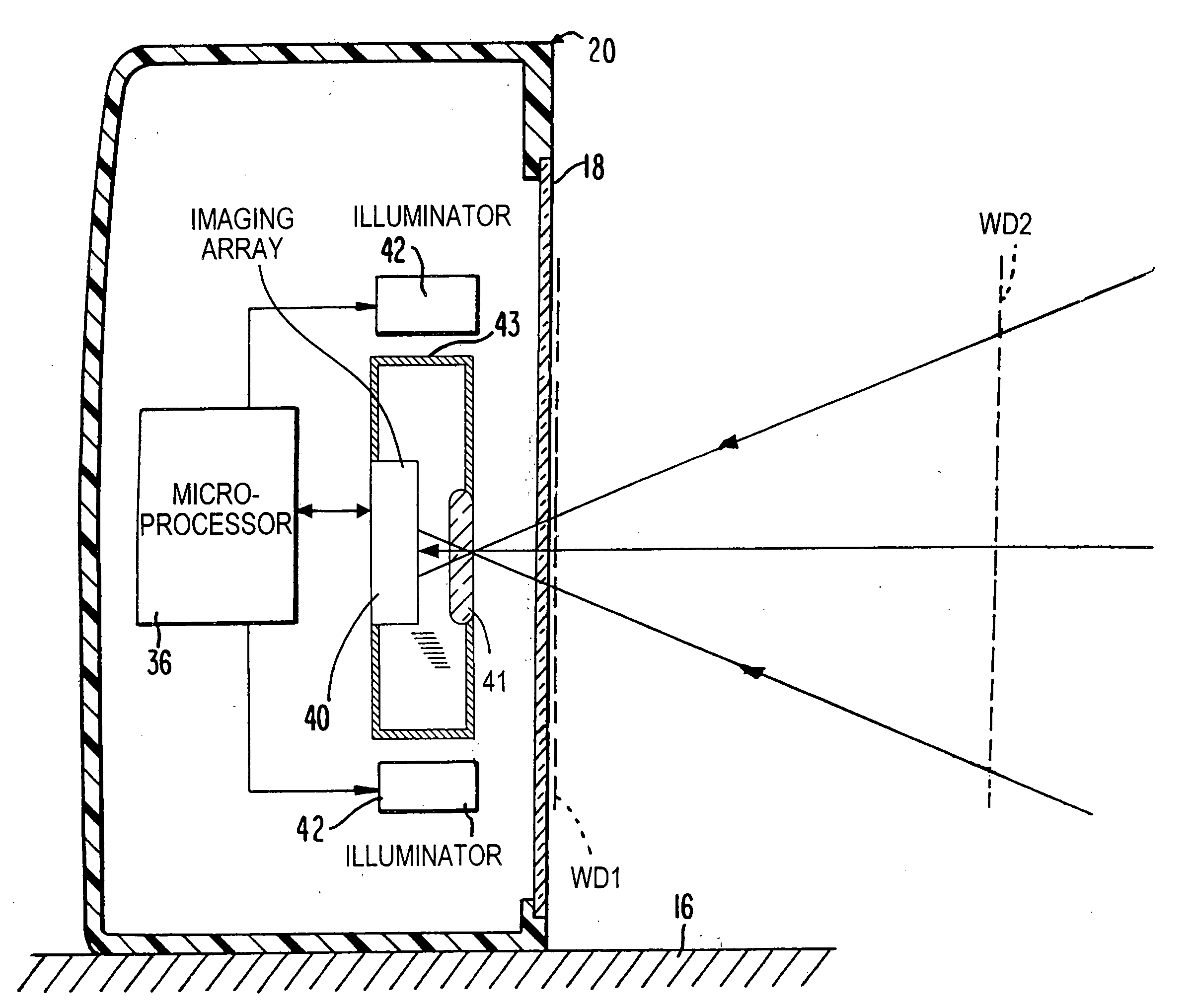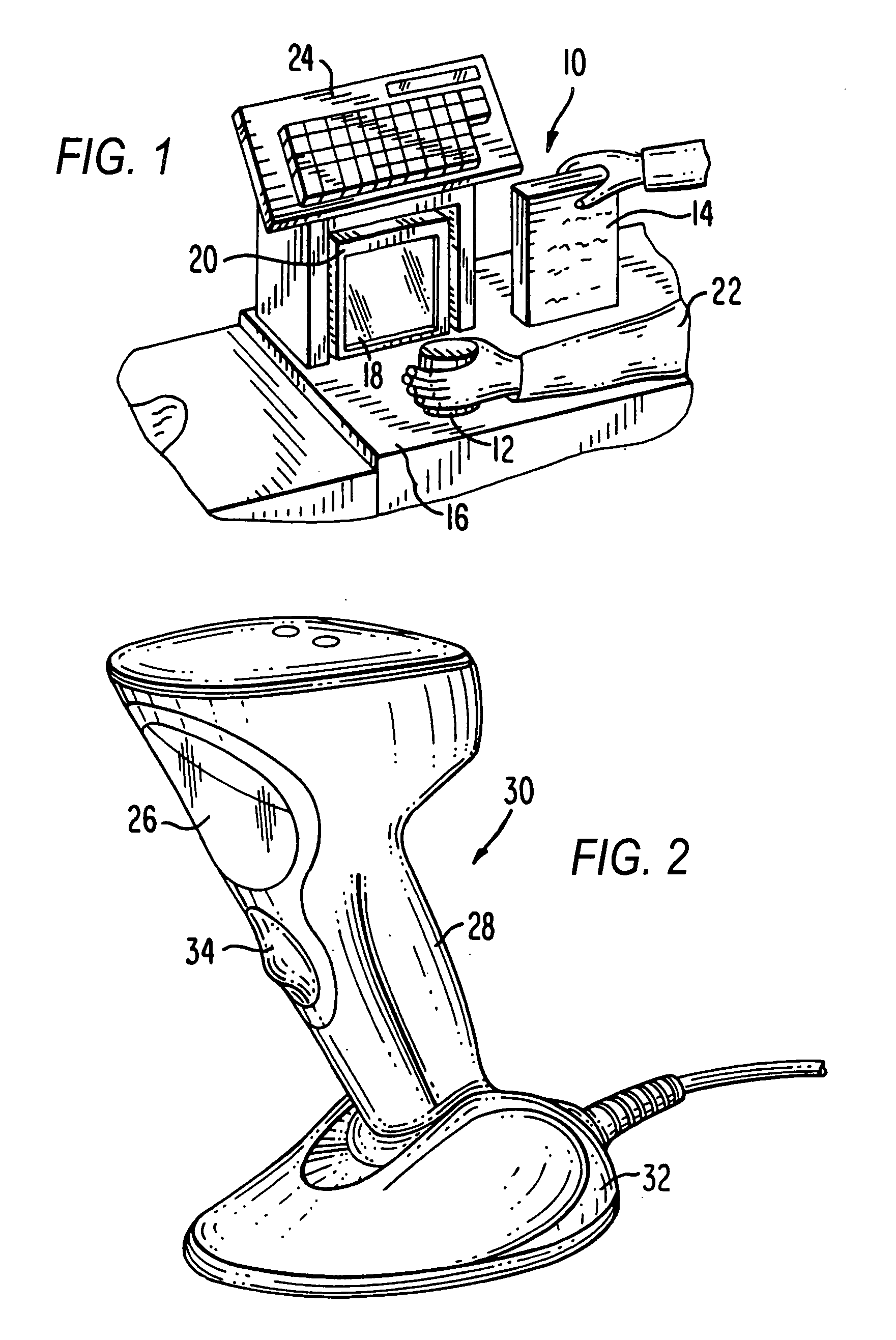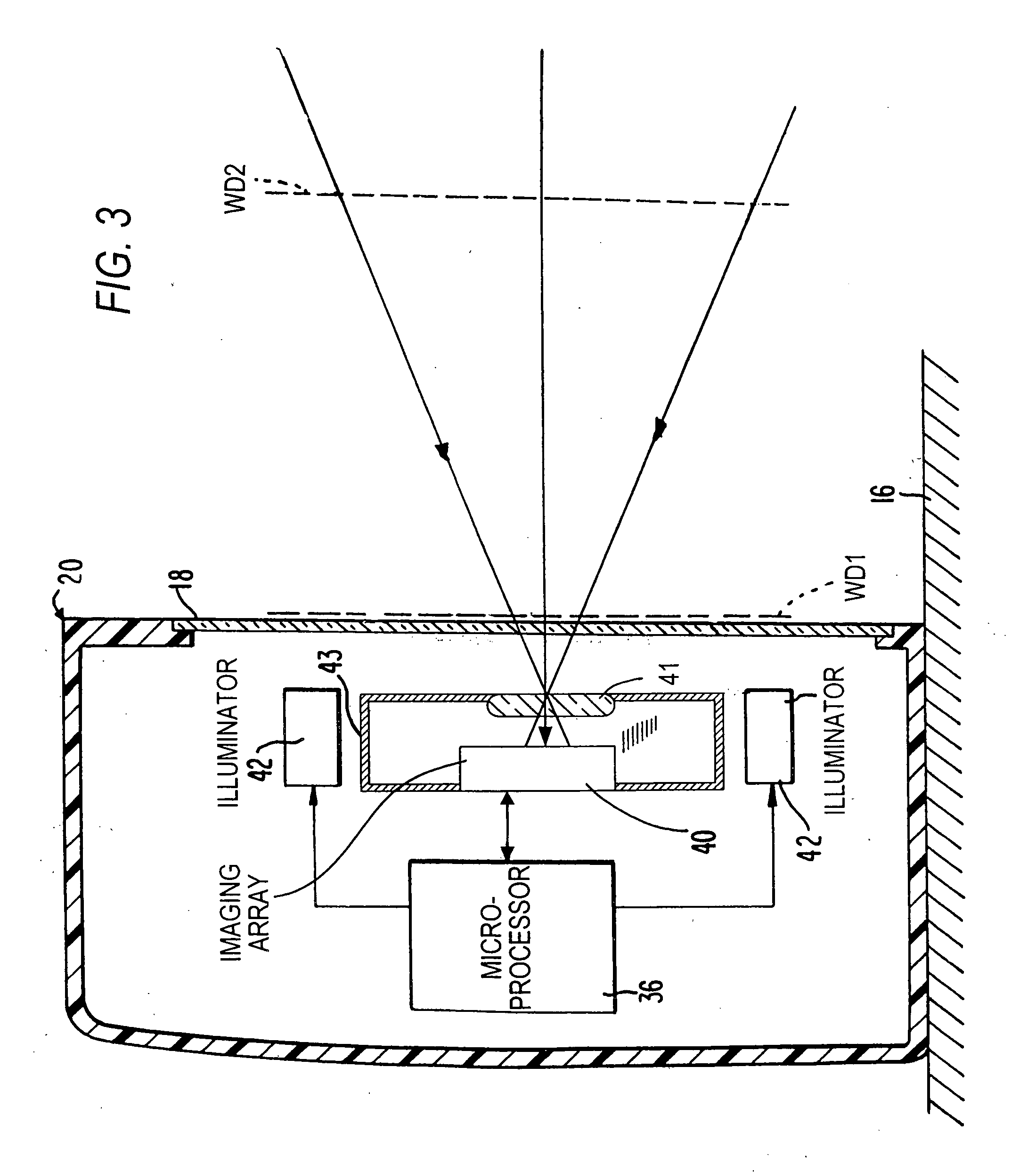Imaging reader with target proximity sensor
a technology of proximity sensor and image reader, which is applied in the field of image reader with target proximity sensor, can solve the problems of image not being reliably and successfully decoded and read, and power consumption is a major concern, so as to improve power consumption, reduce power consumption, and improve the effect of indicia detection speed and efficiency
- Summary
- Abstract
- Description
- Claims
- Application Information
AI Technical Summary
Benefits of technology
Problems solved by technology
Method used
Image
Examples
Embodiment Construction
[0021]Reference numeral 10 in FIG. 1 generally identifies a workstation for processing transactions and specifically a checkout counter at a retail site at which products, such as a can 12 or a box 14, each bearing a target symbol, are processed for purchase. The counter includes a countertop 16 across which the products are slid at a swipe speed past a presentation area or vertical planar window 18 of a box-shaped vertical slot reader 20 mounted on the countertop 16. A checkout clerk or operator 22 is located at one side of the countertop, and the reader 20 is located at the opposite side. A cash / credit register 24 is located within easy reach of the operator.
[0022]Reference numeral 30 in FIG. 2 generally identifies another reader having a different configuration from that of reader 20. Reader 30 also has a presentation area or generally vertical window 26 and a gun-shaped housing 28 supported by a base 32 for supporting the reader 30 on a countertop. The reader 30 can thus be used...
PUM
 Login to View More
Login to View More Abstract
Description
Claims
Application Information
 Login to View More
Login to View More - R&D
- Intellectual Property
- Life Sciences
- Materials
- Tech Scout
- Unparalleled Data Quality
- Higher Quality Content
- 60% Fewer Hallucinations
Browse by: Latest US Patents, China's latest patents, Technical Efficacy Thesaurus, Application Domain, Technology Topic, Popular Technical Reports.
© 2025 PatSnap. All rights reserved.Legal|Privacy policy|Modern Slavery Act Transparency Statement|Sitemap|About US| Contact US: help@patsnap.com



